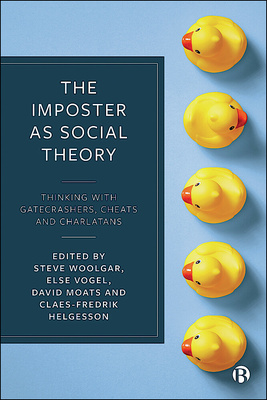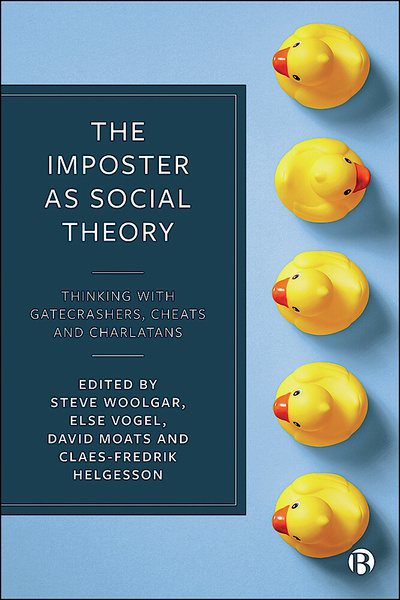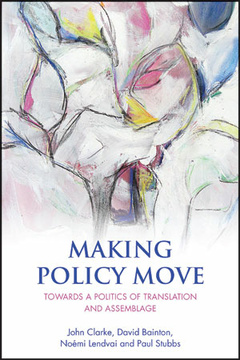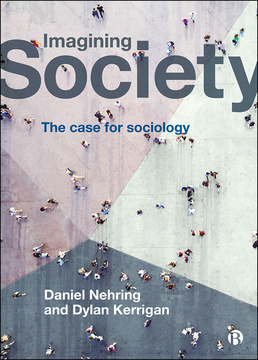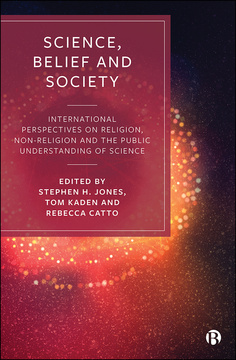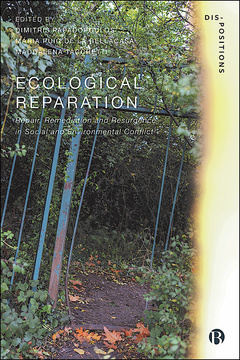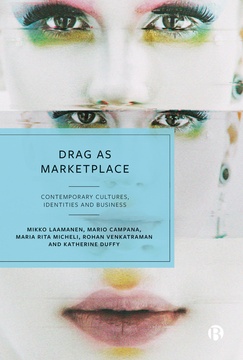The Imposter as Social Theory
Thinking with Gatecrashers, Cheats and Charlatans
Edited by Steve Woolgar, Else Vogel, David Moats and Claes-Fredrik Helgesson
Published
Aug 1, 2022Page count
350 pagesISBN
978-1529213089Dimensions
234 x 156 mmImprint
Bristol University PressPublished
May 26, 2021Page count
350 pagesISBN
978-1529213072Dimensions
234 x 156 mmImprint
Bristol University PressPublished
May 26, 2021Page count
350 pagesISBN
978-1529213096Imprint
Bristol University PressPublished
May 26, 2021Page count
350 pagesISBN
978-1529213096Imprint
Bristol University PressIn the media
'Imposters and Society' in The Measure of Everyday Life podcast
On our blog: Impostering: A contemporary preoccupation
The figure of the imposter can stir complicated emotions, from intrigue to suspicion and fear. But what insights can these troublesome figures provide into the social relations and cultural forms from which they emerge?
Edited by leading scholars in the field, this volume explores the question through a diverse range of empirical cases, including magicians, spirit possession, fake Instagram followers, fake art and fraudulent scientists.
Proposing ‘thinking with imposters’ as a valuable new tool of analysis in the social sciences and humanities, this revolutionary book shows how the figure of the imposter can help upend social theory.
"This book is for anybody bored to tears with the present, repetitive and dull, mainstream social theory." Barbara Czarniawska, University of Gothenburg
"This sparkling book on imposters is the real thing. In a world of fakes, masks and ghosts, the authors show that the action of the imposter is not a performance or a trick but an experiment, a speculation offered to test the limits of appearance in social life." Arjun Appadurai, New York University
"A comprehensive picture of imposters, marking a new concept and new departure. An astonishing range of examples which are important, unexpected, and clever." Stephen Turner, University of South Florida
"Offering the imposter as a figure for social theorizing in a time of post-truth is both bold and acute. An urgent call for rethinking and re-ordering reality." Amade M’charek, University of Amsterdam
“This timely volume responds to a larger societal fascination with scammers, tricksters, and fabulists… [and] highlights the imposter as a figure that can help us understand social (dis)order.” Science as Culture
"One of the most comprehensive endeavours to examine the figure of the imposter in social theory. Empirically rich case studies which will fundamentally reorient how scholars approach the question of deception and the nature of social order and disorder." Gabriella Coleman, McGill University
“Kipling said, ‘success and failure are both imposters'. Indeed, in these essays we see that imposture is socially regenerative. Every politician and scholar should read this original and insightful work.” Lawrence Rosen, Princeton and Columbia Universities
Steve Woolgar is Professor of Science and Technology Studies at Linköping University and Professor of Marketing Emeritus at Oxford University.
Else Vogel is Assistant Professor at University of Amsterdam.
David Moats is Research Fellow at the University of Helsinki.
Claes-Fredrik Helgesson is Professor and Research Director at the Centre for Integrated Research on Culture and Society (CIRCUS) at Uppsala University.
Thinking With Imposters: The Imposter As Analytic ~ Else Vogel, David Moats, Steve Woolgar and Claes-Fredrik Helgesson
The Desire to Believe and Belong: Wannabes and Their Audience in a North American Cultural Context ~ Caroline Rosenthal
A Menagerie of Imposters and Truth-Tellers: Diederik Stapel and the Crisis in Psychology ~ Maarten Derksen
Learning From Fakes: A Relational Approach ~ Catelijne Coopmans
Imitations of Celebrity ~ Mandy Merck
Natural Imposters?: A Cuckoos View of Social Relations ~ Martin Abbott and Daniel Large
Conjuring Imposters: The Extraordinary Illusions of Mundanity ~ Brian Rappert
States of Imposture: Scroungerphobia and the Choreography of Suspicion~ James Kaufmann
The Face of ‘The Other’: Biometric Facial Recognition, Imposters, and the Art of Outplaying Them ~ Kristina Grünenberg
Faking Spirit Possession: Creating ‘Epistemic Murk’ in Bahian Candomblé ~ Mattijs van de Port
The Guerrilla’s ID Card: Flatland Against Fatland in Colombia ~ Olga Restrepo Forero and Malcolm Ashmore
Good Enough Imposters: The Market for Instagram Followers in Indonesia and Beyond ~ Johan Lindquist
Thinking Beyond the Imposter: Gatecrashing Un/Welcoming Borders ~ Fredy Mora-Gamez
Postscript: Thinking With Imposters – What Were They Thinking? ~ Agnes, Forrest Carter, Civet Coffee Bean, Cuckoo, Iansá and Oxum, Sarah Jane, Han Van Meegeren, David Rosenhahn, Diederik Stapel and Jorge Enrique Briceño Suárez







